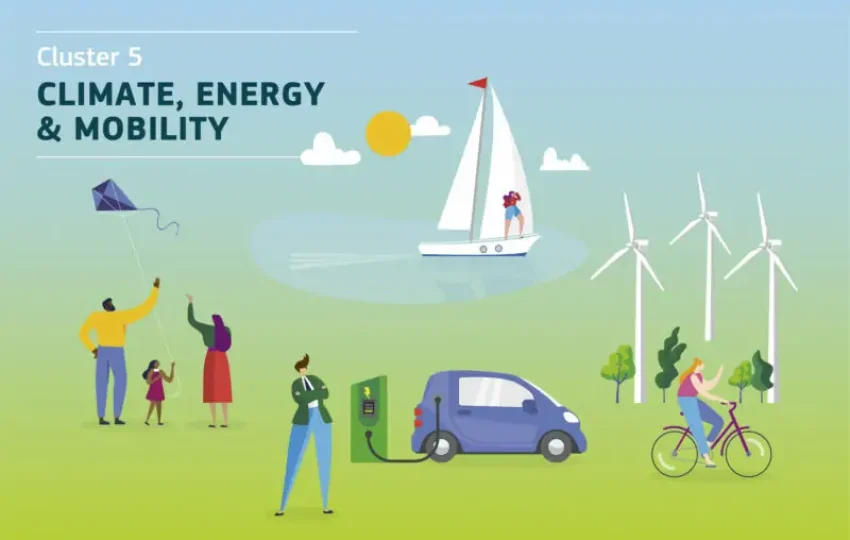Horizon Europe is the European Union’s largest funding program for research and innovation, with a budget of over €95 billion. Within this program, the health sector is a major priority area, with a range of funding opportunities available to support health innovations and research.
In 2023, Horizon Europe Health Calls will offer a new wave of funding opportunities for the health sector. If you’re interested in finding EU funding opportunities related to health, it’s important to understand the Horizon Europe Health Calls 2023 and what they offer.
This blog post will provide a comprehensive guide to the different calls available, from mental health platform hubs to testing solutions for climate change health risks, as well as tips for maximizing your chances of success when submitting an application. Don’t miss out on this chance to fund your health innovations!
Mental Health Platform Hubs
Apply for funding to establish a multidisciplinary and interdisciplinary mental health hub. Hubs will be flagship investments, drawing together relevant expertise from across the UKRI spectrum and engaging relevant stakeholders, to carry out multidisciplinary and interdisciplinary, impactful research at scale on key areas of strategic need in mental health. These areas include:
- heterogeneity within (and overlap across) diagnoses;
- poor mechanistic understanding of mental disorders;
- variability in measures used and a lack of objective markers;
- lack of diversity in consented research studies.
We are looking for challenge-led applications through focus on severe mental illness. We particularly encourage applicants to make the most of opportunities offered by utilising the wealth of data and development in analytical techniques and capabilities to enable stratification by different population groups.
Up to five hubs will be awarded that will jointly form the MH platform. Each funded hub will focus on one or more severe mental illnesses and include themes that will form cross-cutting strategic threads between hubs.
The focus of this funding opportunity is on severe mental illness (conditions that have a significant impact on people’s lives), including but not limited to:
- severe depression
- schizophrenia
- bipolar disorder
- obsessive compulsive disorder (OCD)
- panic disorder
- post-traumatic stress (PTSD) and borderline personality disorder
Deadline: 13/06/2023
Funding to Successfully Finalise EDCTP2-Funded Clinical Trials That Were Negatively Impacted by the COVID-19 Pandemic
The following clinical trials – identified by their clinical trial registration numbers – are addressed by this topic:
- Assessing the safety and tolerability of artemether-lumefantrine+atovaquone-proguanil tri-therapy for malaria treatment in adults and adolescents in Gabon
- A multicentre phase III trial to evaluate the safety, tolerability, and efficacy of a combination of three antimalaria drugs (artemether-lumefantrine+atovaquone-proguanil) versus two malaria drugs (artemether-lumefantrine) +placebo in African children aged 6-59months with an uncomplicated malaria infection
- Efficacy and safety of pyronaridine-artesunate (Pyramax) for the treatment of falciparum malaria in African pregnant women
- Safety and Efficacy of Annual or Biannual Doses of Moxidectin or Ivermectin for Onchocerciasis;
- Safety of a Single Dose of Moxidectin Compared With Ivermectin in Individuals Living in Onchocerciasis Endemic Areas;
- Integrated skin screening and SDR-PEP administration for leprosy prevention: comparing the effectiveness and feasibility of a community-based intervention to a health centre-based intervention in Ethiopia, Mozambique, and Tanzania (PEP4LEP);
- A cluster-randomised controlled Phase IV trial (cRCT) assessing the impact of a Vi-Polysaccharide conjugate vaccine in preventing typhoid infection in Asante Akim, Ghana (TyVEGHA);
- Effectiveness of a Typhoid Conjugate Vaccine in DRC (TyVECO);
- Evaluating a New Stool Based qPCR for Diagnosis of Tuberculosis in Children and People Living With HIV (Stool4TB);
- East Africa Point of Care Viral Load Study (EAPoC-VL);
- Triage Test for All Oral DR-TB Regimen (TRiAD Study);
- Cough Audio Classification as a TB Triage Test (CAGE-TB);
- Intensified Tuberculosis Treatment to Reduce the Mortality of Patients With Tuberculous Meningitis (INTENSE-TBM);
- Preventive Treatment Of Latent Tuberculosis Infection In People With Diabetes Mellitus (PROTID);
- Metformin treatment for diabetes prevention in Africa;
- Maternal, Neonatal and Infant Outcomes at Kawempe National Referral Hospital (PREPARE);
- Serocorrelate of protection against GBS;
- Study of a Group B Streptococcus Vaccine in Pregnant Women Living With HIV and in Pregnant Women Who do Not Have HIV;
- Increasing the uptake of intermittent preventive treatment using sulfadoxine-pyrimethamine through seasonal malaria chemoprevention channel delivery;
- Comparing Safety and Protective Efficacy of Vaccine Candidate PfSPZ-CVac and MVA ME-TRAP/ ChAd63 ME-TRAP in Adults (SPICY);
- Baseline Cohort Malaria Morbidity Study (BLOOMy);
- Safety and efficacy of Dolutegravir and EFV400 for pregnant and breastfeeding women: a randomized non-inferiority clinical trial.
This funding will ensure that essential clinical trials working to deliver answers of immediate public health relevance in SSA can be concluded. Focussing funding to projects previously supported under the EDCTP2 programme is justified by the advanced stage ongoing studies have reached. It is also justified by ethical issues, such as fully validating the willingness of trial participants to take part in the clinical investigations.
Deadline: 29/06/2023
Implementation Research/Real Life Assessment of Existing Interventions in Women and Children’s Health
According to the 2022 report of the World Health Organization, more than half of the world’s maternal deaths occur in SSA, where the rate stands at 525 deaths per 100 000 live births and 27 neonatal deaths per 1000 live births[1]. Current trends show that by 2030 the region will still record 390 maternal deaths per 100 000 live births and 54 neonatal deaths per 1000 live births, very far from the targets set by the Sustainable Development Goals (SDGs). The factors contributing to maternal and child deaths are numerous.
In countries in SSA, infectious diseases remain the leading causes of morbidity and mortality, especially during pregnancy and childhood. Because of limited evidence on the contribution of these diseases to maternal and neonatal mortality, the importance of PRDs for maternal, foetal, and neonatal deaths is often poorly recognised. Despite the progress made in other age groups, effective treatment and prevention of PRDs and other diseases such as diarrhoeal diseases, bacterial infections (especially those where antimicrobial resistance is an issue), sepsis and lower respiratory tract infections in mothers, newborns and children is often lacking and/or lagging. The frequent exclusion of pregnant women and children from clinical trials and the limited number of available products targeting these groups, are factors that contribute to the lowest health indicators in these vulnerable populations. In addition, there is a need for critical appraisal of existing health interventions, which may have been introduced and used by healthcare software without rigorous evaluation in clinical trials. It is thus important to understand whether such interventions lead to better overall health in these populations.
Moreover, failure to translate research findings into policy and practice prevents research from achieving maximum public health benefits. Despite substantial investment in clinical research in infectious diseases, including PRDs, exploitation, and use of results beyond research groups to date remains limited. Barriers to an efficient uptake of research findings include limited interaction between researchers, policymakers, patients’ community and other stakeholders, lack of experience in exploiting research results beyond academia, limited health systems capacity, affordability issues, and differences between the research, programme planning and policymaking structures and actors.
Concerted efforts are needed to increase access to potentially lifesaving, cost-effective interventions to prevent and treat PRDs and other diseases such as diarrhoeal diseases, bacterial infections (especially those where antimicrobial resistance is an issue), sepsis and lower respiratory tract infections in pregnant women, newborns, and children to ensure solid evidence is produced for the recommended interventions and to enhance the use of existing interventions in these populations.
Deadline: 29/06/2023
Global Health EDCTP3 Training Networks – Clinical Research Fellowships
The Global Health EDCTP3 Training Networks will implement training programmes through consortia of clinical research institutions, academia, industry, businesses (including SMEs) and other socio-economic actors from different countries across SSA and Europe, with the objective to strengthen the health research systems of the SSA countries with the highest disease burden. Proposals should include training programmes for researchers, scientists, clinicians and/or other public health professionals in the area of infectious disease research, with practical field research experience. The individuals being trained will carry out ambitious and relevant clinical research projects on infectious diseases affecting SSA.
Global Health EDCTP3 Training Networks proposals should be submitted by a consortium of institutions which must provide training through research programmes to early- to mid-career researchers based in SSA. The fellows must commit to be in Africa for a minimum of two years after completing their training and provide evidence to demonstrate this through a letter of support from their host institution(s).
Proposals should include institutions with a proven track record in the provision of high-quality research training and established regional and global collaborations. These may include research organisations, institutions of higher learning such as universities, national public health institutes or similar agencies, research councils, or other relevant institutions or government ministries. Proposals may also include industry, businesses (including SMEs) and other socio-economic actors.
Deadline: 29/6/2023
Testing and Demonstrating Transformative Solutions to Build Resilience Towards Health Risks Caused by the Effects of Climate Change
This topic relates to the Mission’s objectives to mobilise at least 150 regions in testing the solutions most locally needed to build climate resilience and to deliver at least 75 deep demonstrations of systemic transformations to climate resilience.
The proposals should test and demonstrate solutions that address both the two aspects below, including in the scope at least some of the individual points related to improve prevention and policy-making and at least some points related to improve preparedness of the health system.
- Improve prevention and policy-making, by:
- Improved insights into short- and long-term health effects of climate-related stressors, including planetary health considerations (interactions between global climate change, ecosystem, animal and human health as described in the One Health concept). Taking into consideration differences between infectious and non-communicable diseases, and the particularities of each. With regard to the infectious diseases, emphasis should be given on the surveillance and prevention of zoonotic diseases. These improved insights should made available and be integrated by the regional and local authorities in their planning. The European Climate and Health Observatory can contribute to these efforts and, reversely, learnings from the projects supported under this topic would contribute to the Observatory knowledge basis.
- Strengthening comprehensive and user friendly epidemiological surveillance and modelling and forecasting tools, includingsocio-economic trajectories and adaptation scenarios of exposure and vulnerability to climate determinants. These tools should be suitable for assessing and predicting impact of moderate, extreme and record-breaking events and disasters associated with climate change, including impacts on mental health. Environmental stressors should also be considered when relevant for the prevention of major non-communicable such as cardiovascular and respiratory diseases e.g. combination of heat waves and air pollution or increase in pollens. Surveillance, modelling and forecasting tools should be piloted in the partner regions and communities. Reflecting the One Health concept, the link between animal health impacts due to climate change and subsequent human health impacts should also be considered, when relevant.
- Development of better forecast, early-warning and early response systems and decision-making models for health impacts of climate change which are able to monitor both the impact and the effectiveness of solutions.
- Development and health impact assessment of adaptation measures and monitoring of effectiveness of solutions to improve resilience of countries, regions and cities, including effective nature-based solutions (NBS).
- Improve preparedness of health systems by:
- Development of innovative solutions (technological solutions, NBS, etc) to reduce impact of climate change on human health and wellbeing. Heat and cold waves and floods should be among the stressors considered, but proposals should not limit their work to only these two stressors and might consider the association with environmental conditions such as the association of heat waves and air quality or exposure to pollens. Solutions should be designed with a win-win objective so to not have a negative effect on climate mitigation efforts, after sufficient consideration of positive and negative interactions.
- Preparing training curricula on health and climate change for medical and other healthcare professionals across Europe. The proposed curricula should be trailed in the partner regions, local authorities and communities, training pilot group of professionals.
- Development of innovative, fit-for-purpose, end-user driven early warning and response systems or improving existing ones, including a demonstration of their predictive/response capacity, to ensure a rapid response from health services and civil protection authorities and testing/pilot such systems in the partner regions/local authorities/communities.
- Providing feedback and sharing best practice from pilots to the new Health Emergency Preparedness and Response Authority. Such tests should be accompanied by public awareness campaigns in relation to climate forecasts and health early warning systems, identifying the warning communication chain, role, tasks and responsibilities of science advisors and decision-makers.
Deadline: 20/09/2023
Conclusion
Now that we have explored the various Horizon Europe Health Calls for 2023, it is clear that there are many exciting opportunities for those seeking EU funding for health research and innovation. These calls cover a wide range of areas, from mental health platform hubs to climate change health risks, and offer significant funding opportunities for eligible applicants.
It is important to note that the competition for these grants will be high. Therefore, applicants should ensure that their proposals are of the highest quality and meet the call criteria. To maximize your chances of success, carefully read every call description and criteria before submitting a proposal.
If you are interested in any of the Horizon Europe Health Calls for 2023 mentioned above, do not forget to declare your interest or share your ideas. This will increase your organization’s visibility within the platform, allowing others to communicate with you.
As an EU funding platform, we are committed to supporting our clients in finding and securing EU funding opportunities that align with their needs and objectives. If you need help navigating the Horizon Europe Health Calls or any other EU funding opportunities, our team of experts is always here to help.


